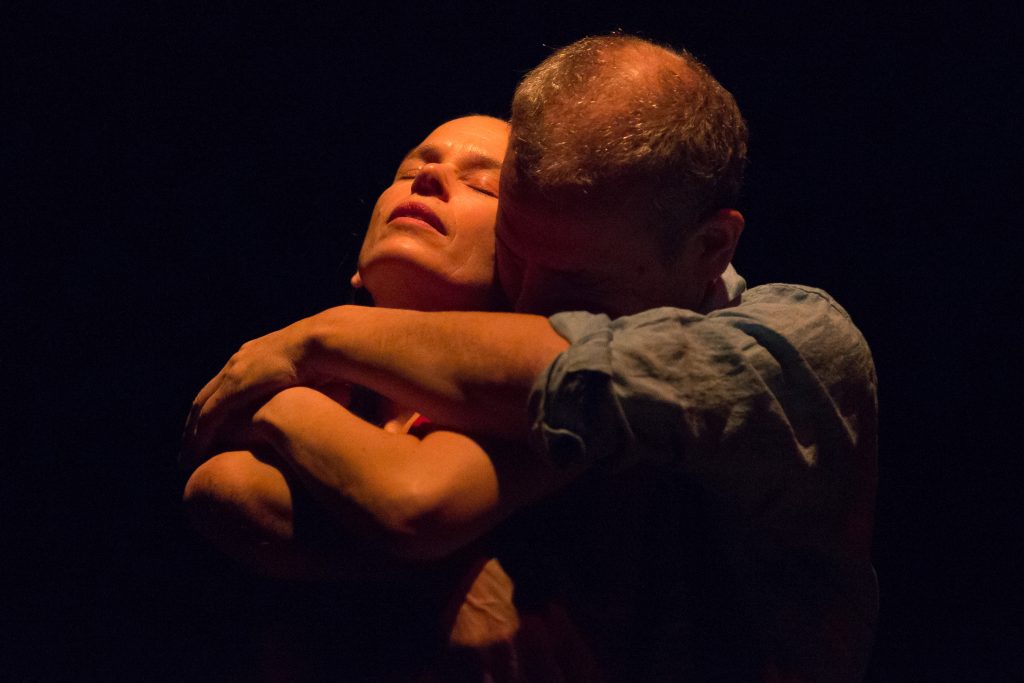
Credit: Kyle Purcell
At the Shadbolt Centre until May 26 (sold out); at the Progress Lab, May 31-June 2, 2018 (limited number of tickets available)
Tickets from $25 at tickets.theatrewire.com
Posted May 25, 2018
It’s been a long time since I’ve thought about Love. Life gets in the way and before you know it, old lovers fade away and sometimes they die. That’s the grim reality.
But Kim Collier and Daniel Brooks, performers, past winners of the prestigious Siminovitch Prize for directing, are in love, consumed by love and, being the inquisitive theatre artists they are, are curious about the True Nature of Love.
They travelled to India, read the love poetry of the Persian poet Hafez, pondered ‘The Event’ theories of philosopher Alain Badiou, returned to Canada and co-created 40 Days and 40 Nights. The show premiered in April in Toronto to mixed reviews ranging from “transformative” to “self-indulgent”. It is, at times, a little of both depending on what stage you are at in your own life.
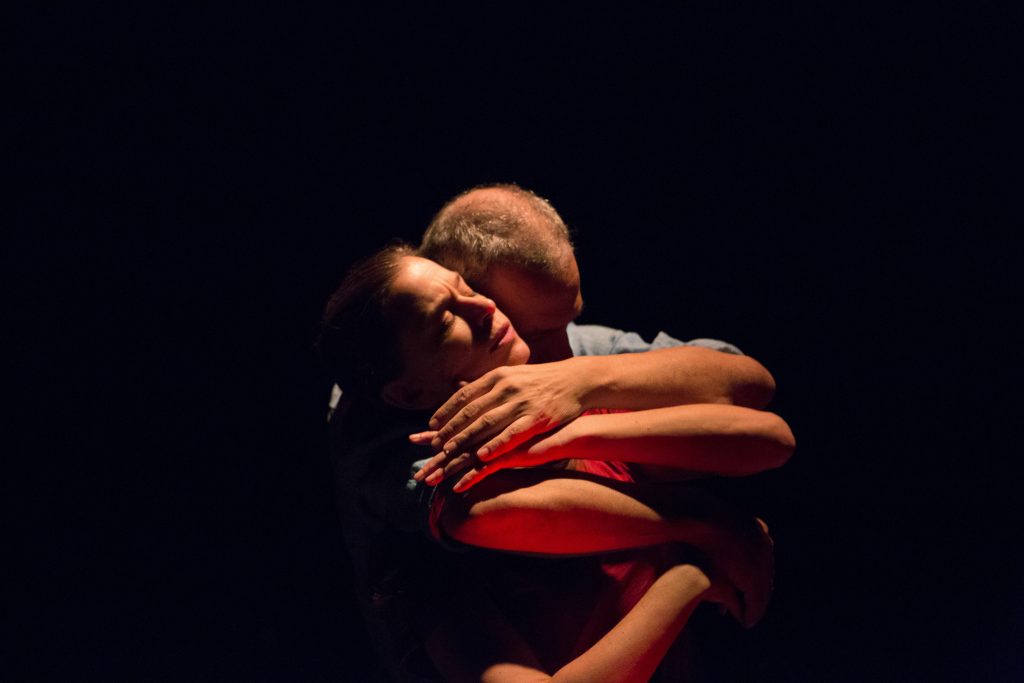
Credit: Kyle Purcell
In an interview, Collier says the piece is “in motion . . . it is changing every day”, partly due to audience participation each night. But there are consistencies: patrons are asked to read a set of instructions before entering the theatre and then to put their shoes and anything they don’t “need” on a little mat before striking a bell and seating themselves in the performance area, a curtained-off, U-shaped area. It is shadowy; two red-patterned Persian rugs carpet the floor; there are candles and glasses filled with water on two silver trays. There’s music. The setting is ceremonious, ritualistic, meditative.
We are asked to stand and when the answer to more than a dozen question posed by Brooks is “yes”, we are asked to sit. “Have you given up on love?” Have you kissed your lover in the last twenty-four hours?” “Are you polyamorous?” “Have you drunk pomegranate tea from your lover’s hand?” Eventually we are all seated. It’s a playful beginning to an exploration of love.
Brooks, on Collier’s urging, lectures us briefly on the philosophy of Badiou – love being, according to Badiou’s theory, an ‘Event’ after which everything changes. More questions, an opportunity to write with chalk on the floor what we think about when we think about love – assuming we think about love at all.
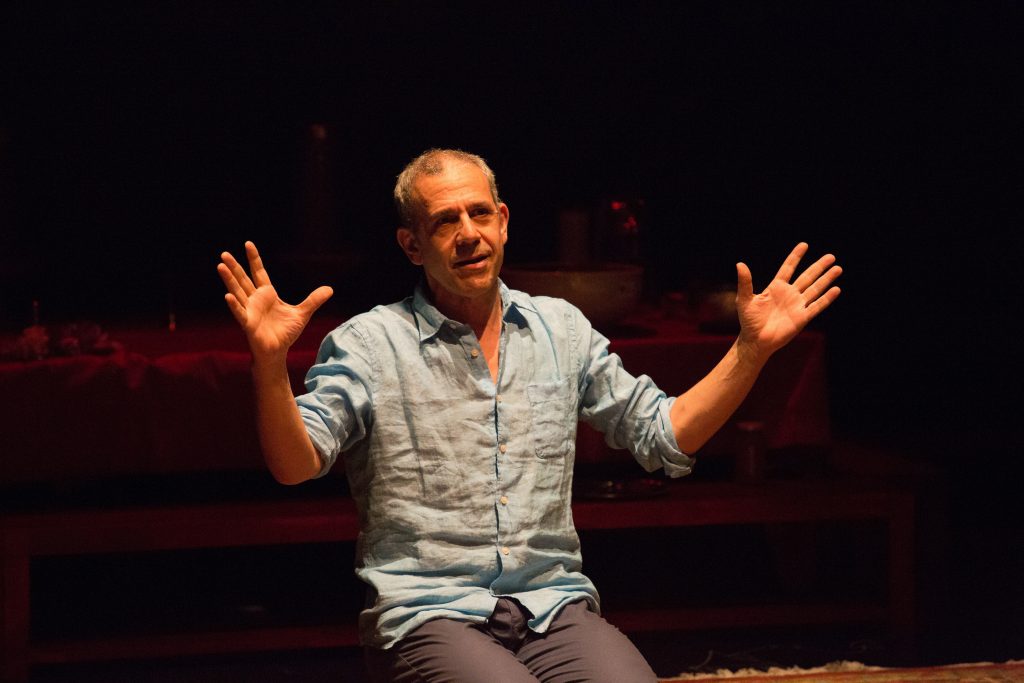
Credit: Kyle Purcell
Here’s the thing and this says much more about me than 40 Days and 40 Nights: romantic love eventually takes a back seat to love of family and old friends. And be grateful that it does. All that energy, all that strife, all that time believing you and your lover are the centre of the universe. All that pain when it ends through betrayal, falling out of love, growing weary of the relationship or death. And how many couples make it to “’til death do you part”? And are still happy?
It’s wonderful that Collier and Brooks have found love. And it’s wonderful that they feel they want to spread their love around. But maybe love – like achievement – thrives best when experienced quietly, privately and with deep gratitude for the gift it is.
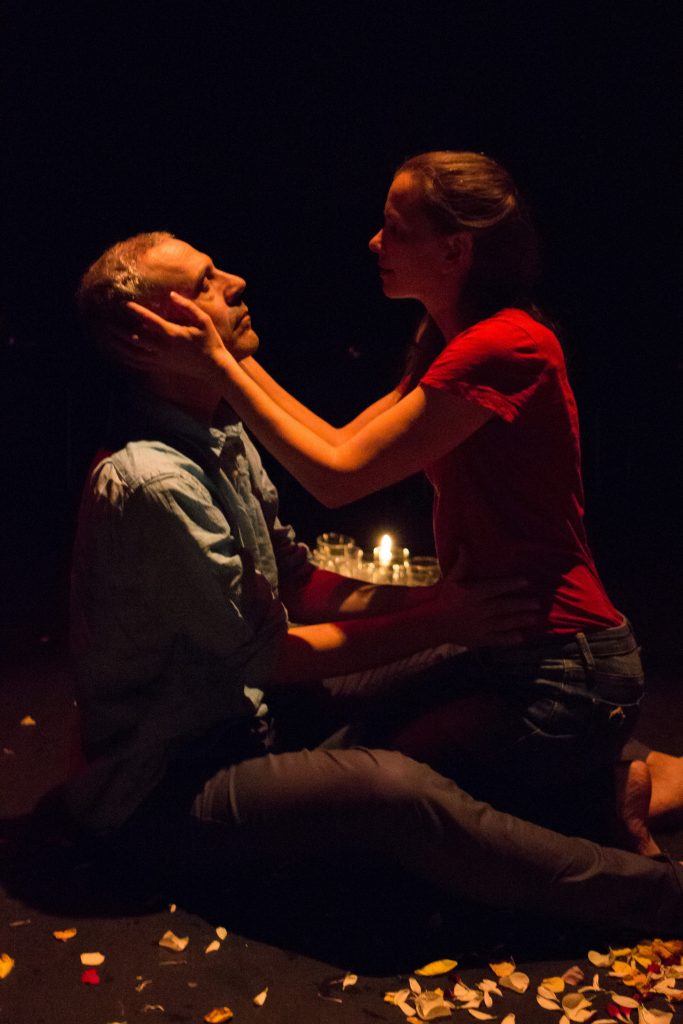
Credit: Kyle Purcell
I’m guessing that 40 Days and 40 Nights appeals to those who are still falling in and out of love, or those who have, like Collier and Brooks, found love in mid-life and are doubly, triply grateful. For the rest of us, the show is a mixed bag of envy, nostalgia, regret and wonder.
Today I am contemplating love and wondering if, as the little poem in the little book I received at the show suggested, my heart is too small for love, for romantic love. Do I know what love is? I know it changes over time. Do I understand what Brooks and Collier decided to do in India – “Can we live 40 days and 40 nights making all choices based in Love?” No.
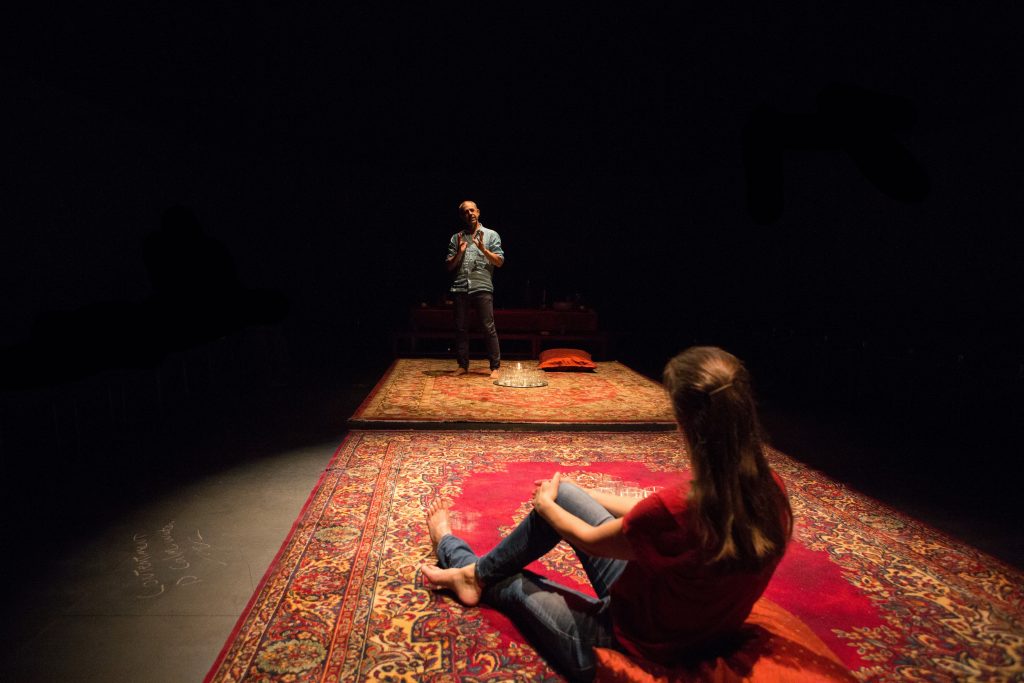
Credit: Kyle Purcell
Produced by Electric Company Theatre and Necessary Angel Theatre Company, 40 Days and 40 Nights looks and sounds lush: candles, red wine, carpets, rose petals, bells, Eastern-sounding music by composer Andrew Creeggan. Design is by Ken Mackenzie with lighting by Jennifer Lennon. An enduring image is that of Collier lovingly washing the back of Brooks (as a now old man), seated naked in a washtub. Would that all loves would last so long and that we would all have someone to bathe us in our old age.

